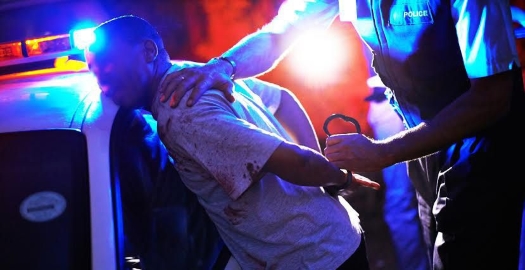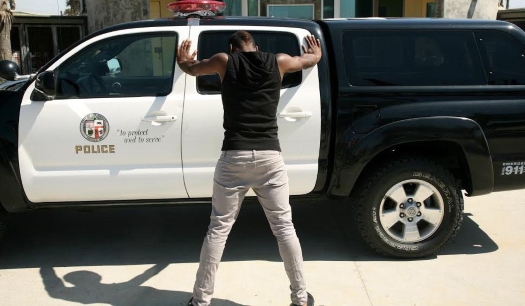Treatment or Jail?
By Nisa Islam Muhammad -Staff Writer- | Last updated: Jan 15, 2020 - 9:55:21 AMWhat's your opinion on this article?
Report Examines Public Health Policies For Low Level Drug Dealers

|
Punishing drug dealers with jail has failed to stop the flow of drugs into the United States, but according to a report by the Drug Policy Alliance, the harsh criminalization of supply-side drug market activity may actually make drug use more dangerous, increase overdose deaths and lead to more violence in communities.
“With a record 70,000 deaths from accidental overdose in 2017, people are understandably searching for solutions, but applying harsh penalties to drug sellers scapegoats people who are more often than not drug users as well, while ignoring the larger issue,” said Lindsay LaSalle, managing director of public health law and policy at the Drug Policy Alliance.
“Instead, we should be using the same resources and determination to reduce the actual harms of both drug use and drug prohibition, repair the criminal legal system’s discriminatory response to the drug trade, and increase access to evidence-based treatment and support services that benefit health, public safety and economic opportunity in the long term,” she added.
The report chronicles the story of Louise Vincent. Before she became the woman to see for clean syringes or the opioid overdose antidote naloxone in Greensboro, North Carolina, she had struggled with drug use her whole life. When she could not find an effective treatment for her bipolar disorder, she turned to drugs to self medicate. Drugs helped her cope with her feelings.
She sold drugs to support her drug use. Many think people are either drug users or drug sellers but often the line is blurred. The report details that many people who use drugs also sell drugs to support their drug use.
“It’s very expensive to use drugs,” Ms. Vincent explains. “You have to hustle, and everybody that uses drugs—who doesn’t have loads of money—hustles.” She sold a considerable amount, she said, but still had enough money only to barely get by day to day. “I knew [prison] was a possibility,” she says, “but when you’re surviving, those aren’t the things on your mind. You’re doing what you have to do.”
In 2003, she was charged with possession with intent to sell cocaine. She pleaded guilty, and—unlike many others in the same position—was able to go to a residential treatment program in lieu of prison time. With support from her family, especially her mother, she was able to piece things back together and earned a master’s degree in public health.
According to the report, the current system has a discriminatory impact on communities of color, despite the fact that available data suggests White people are slightly more likely than either Blacks or Latinos to report having sold drugs.
Michael Harrison sold drugs in Maryland and received a felony conviction. For years he’s been unable to find stable employment to care for himself and feed his family.
“I paid my debt to society, but this felony conviction follows me everywhere I go,” he told The Final Call. “Once they get the background check, I’m history. I can pass a drug test. I’m done with drugs, but Black people don’t bring them in the country. We are the little people in this major business, yet we are the ones that are filling the jails,” said Mr. Harrison.
“What about the really big drug dealers? They say they’re going after them but it’s just us and most of us have drug problems on top of selling drugs. Get us some help. Get us some real jobs so we don’t have to sell drugs to make money. Bring industry into our communities. That will solve this problem,” he added.
Imprisoning people who sell drugs does not reduce the drug supply, increase drug prices, or prevent drug use, Mark Kleiman, a drug policy expert, explained. “We did the experiment. In 1980, we had about 15,000 people behind bars for drug dealing. And now we have about 450,000 people behind bars for drug dealing. And the prices of all major drugs are down dramatically,” he said.
The report, “Rethinking the Drug Dealer,” was issued in December and examines the question: do longer sentences lead to higher drug prices and therefore less drug consumption? The answer is no, the report concludes. When a person who sells drugs is imprisoned, they are inevitably replaced by a new recruit or by remaining sellers as long as demand remains unaffected.

|
A Maryland police officer once described arresting drug sellers as “playing whack-a-mole” and “banging your head against a wall,” because dealers can be so efficiently replaced. The report demonstrates how the United States’ punitive approach to people who sell or distribute drugs—rooted in stigma, ignorance and fear, rather than evidence— has done nothing to reduce the harm of drug use or improve public safety, while instead creating new problems and compounding those that already exist.
“Despite the challenges of discussing supply-side drug policy reform in the midst of an overdose crisis, we cannot be silent while policymakers repeat the discriminatory, ineffective, expensive and dangerous mistakes of the past,” Alyssa Stryker, the report’s author and former criminal justice policy manager at the Drug Policy Alliance (DPA), said in the report.
The group stressed the report represents an effort to address the situation of people who are involved in the drug trade. This is an important step for which people within the organization and its allies—especially in the formerly incarcerated persons community—have long advocated.
The report highlights the following:
• Current laws were created on the premise that they would reduce overall supply, and in turn, consumption. In reality, the opposite has occurred. We have increased the number of people incarcerated for selling or distribution offenses by 3,000 percent—from 15,000 in 1980 to 450,000 today—and drugs are more readily available, at significantly lower prices.
• Nearly half of people who reported selling drugs also meet the criteria for a substance use disorder, supporting the idea that they are selling drugs, to an extent, to support their own dependency.
• Laws against drug selling are so broadly written that people arrested with drugs for personal use can get charged as “dealers,” even if they were not involved in selling at all.
• While the criminal legal system purports to focus on high-level sellers, the data show that supply-side criminalization disproportionately impacts the lowest-level people on the supply chain.
“Too often, public discourse draws an arbitrary line between people who use drugs and people who sell drugs—in practice, this creates space for the current gentler rhetoric around opioid user and the draconian policy responses to people who sell fentanyl,” said Kassandra Frederique, managing director of policy advocacy and campaigns at the Drug Policy Alliance.
“We want to be clear: our reform community is everyone impacted by the war on drugs, and that includes people who use drugs and people who sell drugs. We thank the movement for its patience and are excited to continue the work to build a bigger, broader, and more responsible movement that centers not only people who use drugs, but also people who sell them,” she said.
The report recommends:
• Eliminating mandatory minimum sentences;
• Repealing drug-induced homicide laws;
• Expanding 911 Good Samaritan laws to decriminalize selling- and distribution-related law violations at the scene of an overdose;
• Repealing laws, revising policies and eliminating practices that obstruct access to housing, employment, education, professional licensing, and access to credit and financial aid on the basis of a person’s criminal record;
• Providing funding for reentry programs that support people leaving prison.
The irony of the new legalization of marijuana laws is that they leave Black men imprisoned for drug dealing and allow White men to get rich as legalized drug dealers.
“Rich White dealers have the capital to start marijuana enterprises now,” Boston Attorney Hakeem Muhammad told The Final Call. “Harvard University, Harvard Law School and various other law schools are even having classes where they are teaching marijuana law, and the regulations where just a decade ago people were being wholesale criminalized for selling marijuana which they’ve decided today is okay,” said Atty. Muhammad.
“A lot of problems with the war on drugs is that the laws are not retroactive. There are still brothers incarcerated for selling various drugs that they have legalized but because the laws are not retroactive, they continue to be incarcerated while upper class rich White people have the capital that inner city Blacks don’t have to sell marijuana,” he pointed out.
“When it comes to selling drugs you need to take into account the economic necessity, the oppression Blacks have endured from slavery, being placed intentionally in different depressed areas of poverty that in and of itself compels many people to sell drugs. Of course, it’s not going to help to just lock somebody up and incarcerate them; you have to deal with the underlying economic conditions people live in,” concluded Atty. Muhammad.
INSIDE STORIES AND REVIEWS
-
-
About Harriett ... and the Negro Hollywood Road Show
By Rabiah Muhammad, Guest Columnist » Full Story -
Skepticism greets Jay-Z, NFL talk of inspiring change
By Bryan 18X Crawford and Richard B. Muhammad The Final Call Newspaper @TheFinalCall » Full Story -
The painful problem of Black girls and suicide
By Charlene Muhammad -National Correspondent- » Full Story -
Exploitation of Innocence - Report: Perceptions, policies hurting Black girls
By Charlene Muhammad -National Correspondent- » Full Story -
Big Ballin: Big ideas fuel a father’s Big Baller Brand and brash business sense
By Bryan Crawford -Contributing Writer- » Full Story






 Click Here Stay Connected!
Click Here Stay Connected!








